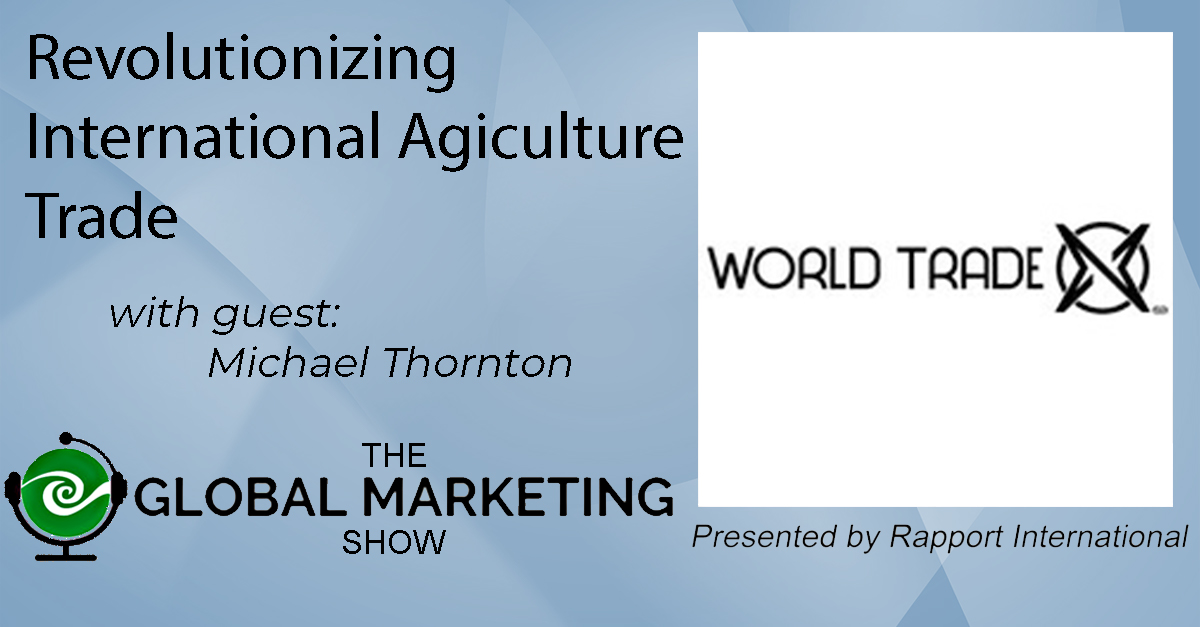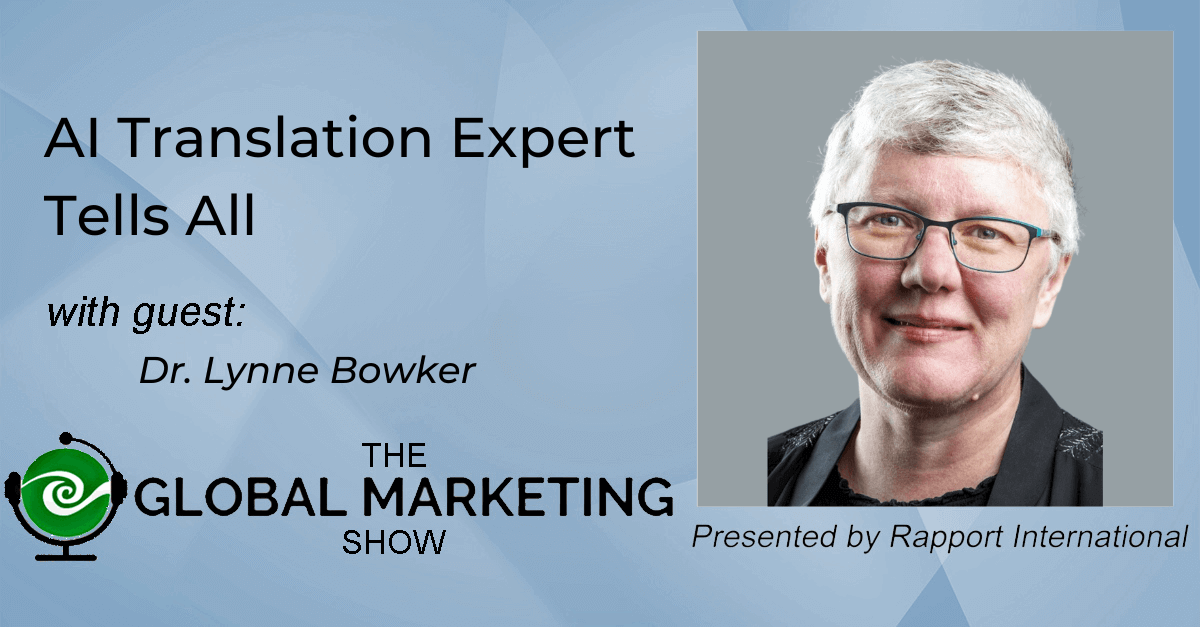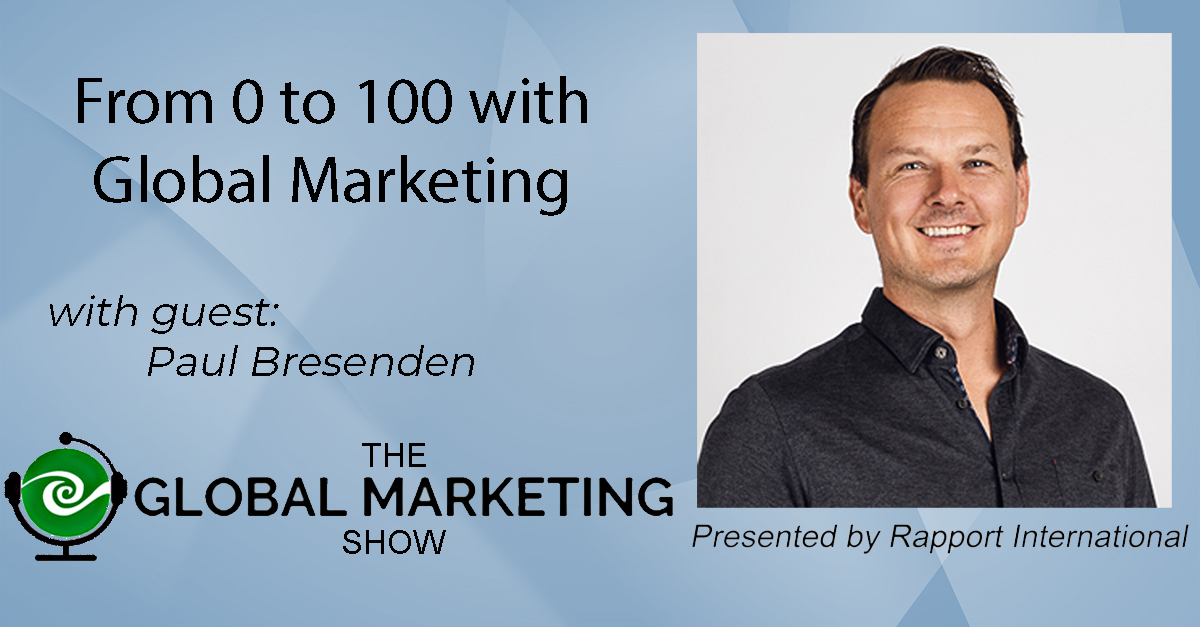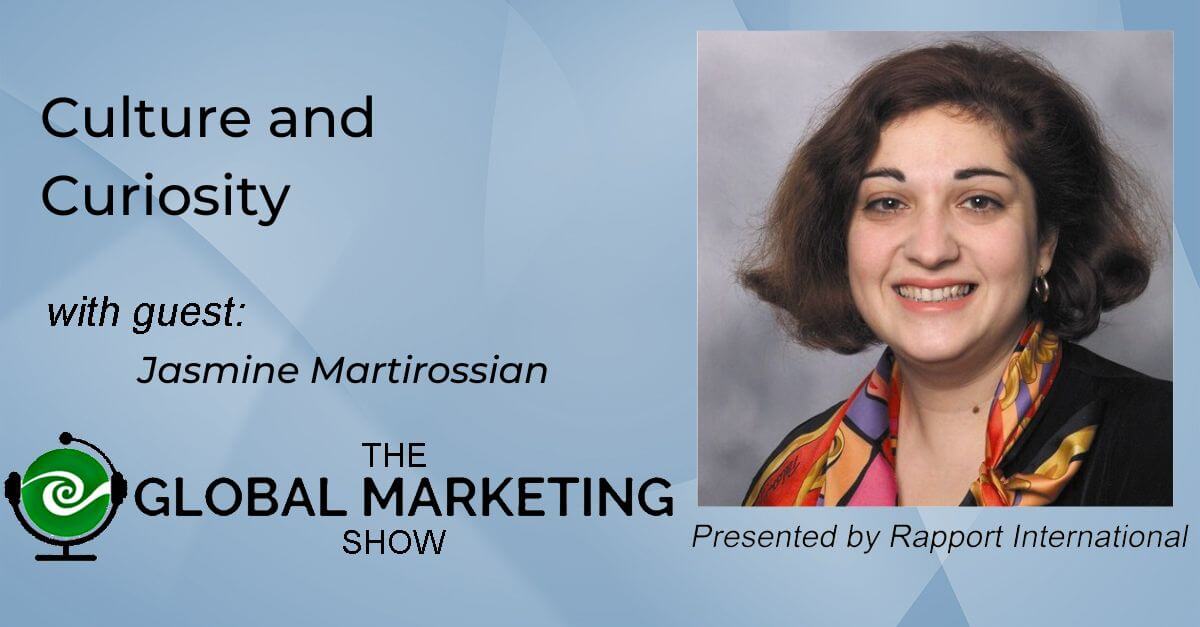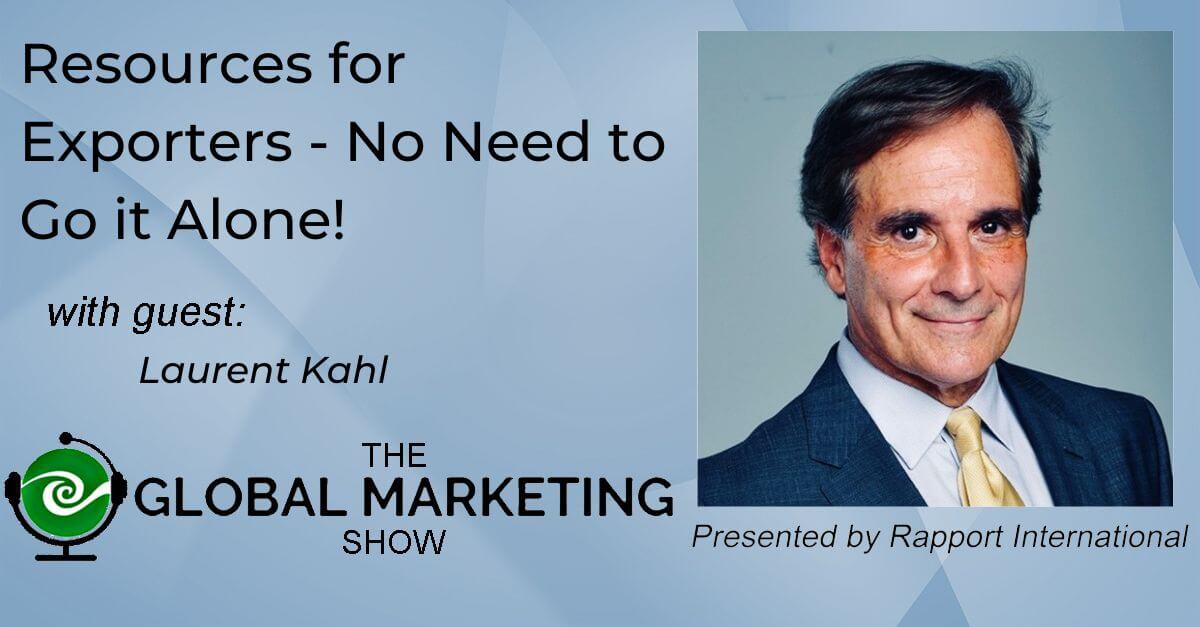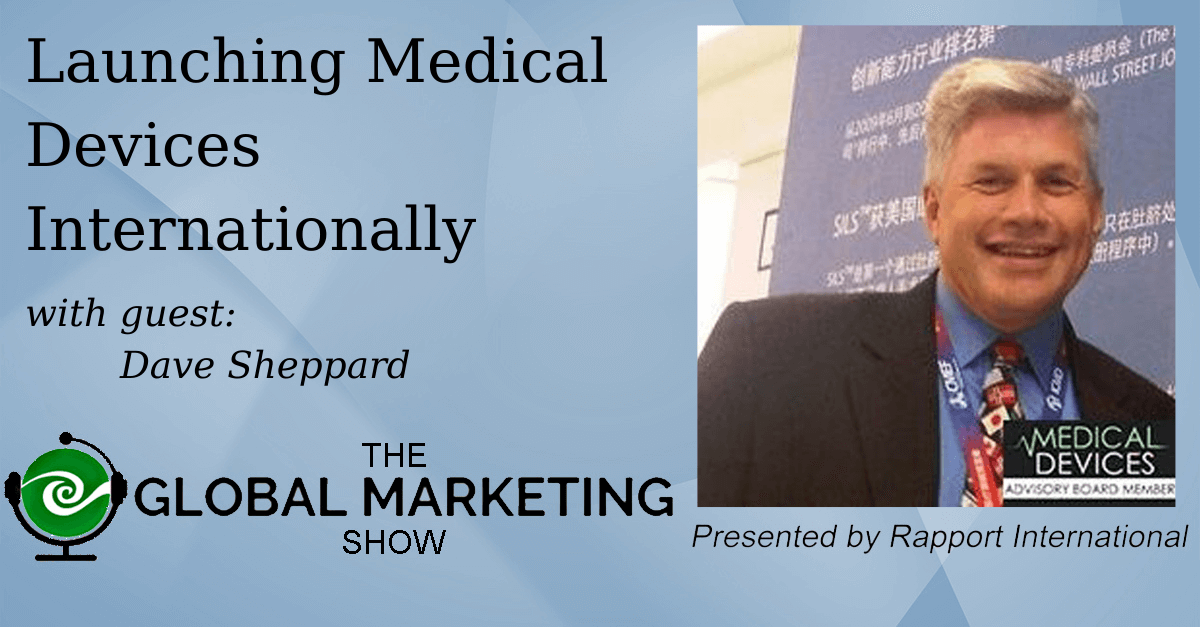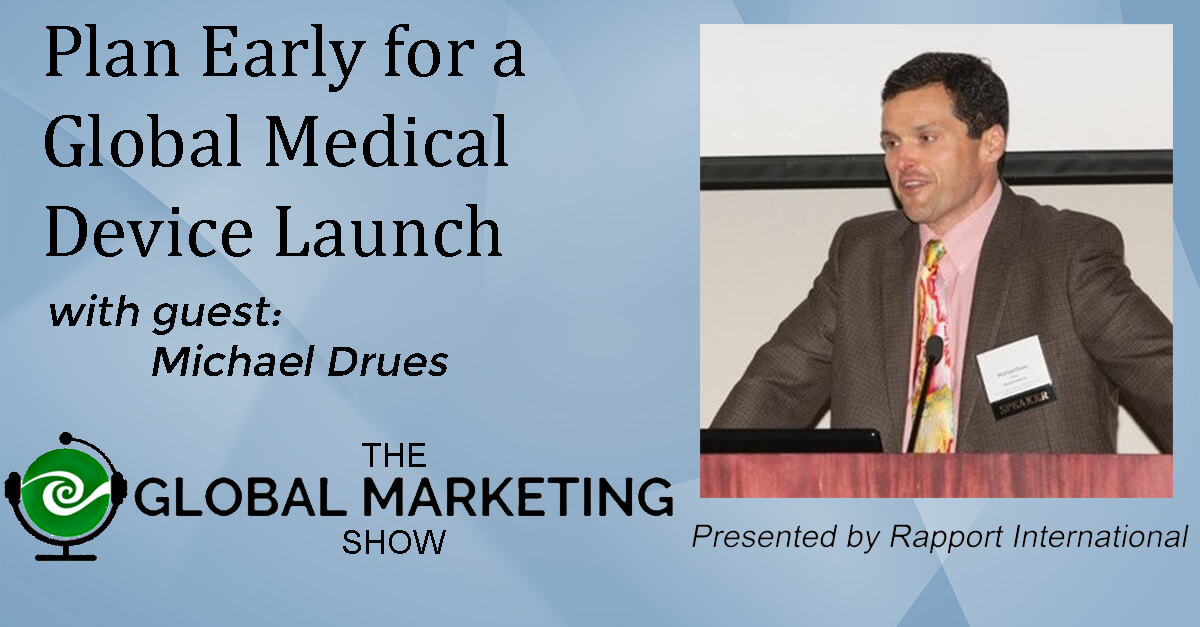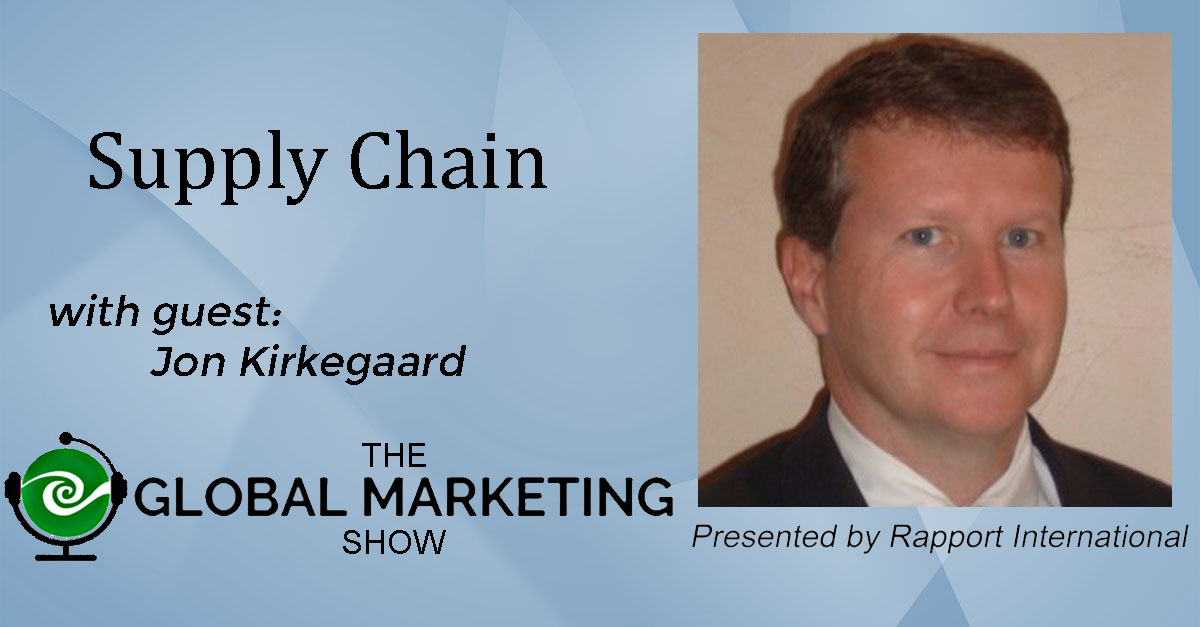Ken Wasylik, founder and owner of E.M. Wasylik Associates, has over 25 years of experience in helping companies expand across borders. The biggest challenge they have is deciding what market to enter. He says that after entering 2-3 markets it becomes a “process rather than an adventure”. Which market to enter first takes a little research and insight.
He helps companies look at variables such as:
- Strategic plan – how to make the expansion meet the goals
- Internal resources – the ability to serve time zones, connect across languages, and understand cultures
- Logistics – how heavy are the products to ship
- Opportunities – where are the greatest options
- Competition – where is the least competition
- Returns – how to get the biggest return on export investment
When they work with a company, the look at 50 countries across 20-30 variables to make sure the choice makes sense. Once the countries are prioritized, they begin the work of developing a market entry plan. Over time, the process is replicated across each country as they become a priority. He is clear in that it’s too much to try to enter multiple countries at the same time, especially when the company is new to exporting.
With all the opportunity in the US, I asked Ken why he’s such a fan of exporting. He explains that successful business is about mitigating risks and optimizing profits. Global companies are naturally diversified so when one economy drops, others are rising. Back in 2008-2009 when the US economy faltered, he saw that companies that exported grew. And, companies that export have higher profitability since US goods are in demand.
In the podcast, he gives examples of companies and their process for deciding what countries to enter. It’s fascinating to hear how the coolant cleaning company went to Canada, while the medical device company went to the Middle East.
Of course, I always like to hear about language translation and international expansion. He said that even though many senior executives are bi or tri-lingual, all the other managers, especially the local ones may not have English proficiency so it’s important to have language skills to support your expansion efforts. He told the story about an US businessperson responding to a question that meeting their needs would be a “piece of cake”. Shortly thereafter the in-country CEO offered lunch. Since it was still morning, the team was surprised. Luckily, they figured out that he thought they wanted cake to eat and were able to explain the idiom of “piece of cake” meant easy to do. This is another good reminder to use clear language when speaking to people who don’t share your native language.
As for why a company would hire him instead of accessing the Department of Commerce or State Export Center resources? Ken explains that the government resources offer introductions, grants, and general country research. E.M. Wasylik Associates offers implementation, boots on the ground, and specialty research.
His advice – travel the world for great life experiences.
His favorite foreign phrase – No problem. It’s hysterical to listen to all the languages he knows that phrase in and the various meanings it holds!
Links:
Website: E.M. Wasylik Associates LLP - www.emwasylik.com
LinkedIn: https://www.linkedin.com/in/kenwasylik/
Email: ken.wasylik@emwasylik.com
Phone: 608-850-5643
Connect with Wendy: https://www.linkedin.com/in/wendypease/
Music: Fiddle-De-Dee by Shane Ivers - https://www.silvermansound.com
ATTENTION: Below is a machine generated transcription of the podcast. Yes, at Rapport International, we talk a lot about how machine translation is not good quality. Here you see an example of what a machine can do in your own your language. This transcription is provided as a gist and to give time indicators to find a topic of interest.
[00:00:34] Wendy: Listeners of The Global Marketing Show, I am happy to have you listening to us today and I'm sure you're gonna like this episode a lot, it's very exciting to me.
[00:00:45] And before we get started, I just wanna remind you that the podcast is sponsored by Rapport International, who connects you to anyone, anywhere in the world by providing high quality written translation and spoken interpretation services. And just for fun I went to the website Rapport Translations, and I went to the current blog to see what was posted, and the latest blog is called the "Goldilocks Principle; How to Start a Global Marketing Effort." So if after you listen to this podcast you wanna learn more, you can head on over to Rapport Translations, and in the search bar up top on the right, you just search the "Goldilocks Principle" and it'll bring you there. Plus there's a ton of other information.
[00:01:31] So, thank you so much for listening! Today I am going to introduce Ken Wasylik. He is president of EM Wasylik Associates that was established in 1998 to assist and support businesses of all sizes with the prerequisites and intricacies of international business expansion. His expertise and experience lies in business, sales, operations, marketing, and financial consulting to companies, both in the U.S. and non U.S. based that are emerging or expanding globally. He has an M.B.A. From Thunderbird School of Management and a B.S. In accounting and finance from Marquette University.
[00:02:14] Now I met Ken when his company was in D.C., accepting the E award from the Department of Commerce. This is the highest award that a company can get in recognition for U.S. exporting or, services to support exporters.
[00:02:31] Congratulations, on your award and welcome to The Global Marketing Show!
[00:02:36] Ken: Thank you very much, Wendy. It's a pleasure to be here and it was great to meet you in DC as well. At the E award ceremony sponsored by the army, brought to you by the us commerce department.
[00:02:47] Wendy: Yes, they did a very nice job of recognizing awardees.
[00:02:52] And you caught my eye because you offer services to help companies go international from whatever country they're in. And I've often. Like kind of got this rumbling of once companies do it, they get this feeling of you know, what I got was, I wish I had gone global earlier, but when talking to you, you said that in your experience over the 25 years of doing this, you get more of the feeling of companies say, oh, it appears that we're late to the market or the competition beat us here.
[00:03:26] Can you tell me some more stories about where that's come up?
[00:03:31] Ken: Well from a us perspective, and I think that's what we're talking about is from a us perspective and most of our clients are small, medium size, so they're limit. They can't be in every market in every. Global region all at the same time, or initially you just don't have enough resources and even the multinationals have to prioritize.
[00:03:56] So when you start doing your prioritization, you're starting to look for the best markets for your product or service. And once you establish a beach ad in one market, two markets, three markets, then you try to expand that outside. Kind of leverage your. And to our market place presence and increase your brand awareness, but in doing so there's a lot, there's always a lot of competition.
[00:04:27] And I, what we see is that when you enter a us company enters, typically the Europeans or the Asian competitors are there already. And so now you have to be somewhat tactful or tactical, I should say at the same time being very strategic. Trying to gain a market position when your competition has been there already.
[00:04:55] And we've seen this we work with a food service and healthcare mobile solutions provider here in the us, and they see great opportunities in the middle east. And the reason being is that the middle east, when oil is a hundred dollars a barrel there's a. Construction in developing the infrastructure especially on the healthcare side, on the food service side, there's a lot of competition, but there's also a lot of advancements in restaurants and hotels and build out, especially, let's say in Dubai and Abu Dhabi and Emirates.
[00:05:29] And now in Gutar because of the world, the. Cup coming up. But what you see is that your European companies have been there for 20, 25 years, cuz it's very natural for them to. If you're a German company to go into France and go into Italy or, or alike, or from a us perspective, if you're a company let's say in Illinois, it's natural to get into the next state, to the left, to the, to the right, to the east or south, but not necessarily take that big leap.
[00:06:00] 6,000 miles. And so what we're seeing here is that, okay, now you have to be much more innovative, much more tactical kind of scrappy, find your niches, and then you build from those niches. And of course, when you get there and you're doing your market research, you you're saying, wow, it probably would've been.
[00:06:23] If it wasn't for competitor a, B and C, I would have a better chance, or I would, I would see a greater opportunity. And this is where I'm, I'm coming from saying, okay. The competition is here. But this is very similar to in the United States. A lot of times people ask, you know, about because we also work with non-US companies coming into the United States, a lot of European companies and Asian companies trying to find markets here in the us.
[00:06:55] And I, I consider the United States the most competitive market in the world. Why. Wishes to be here. Everyone sees a large market. In fact, we have a client from Europe and they're like, they're saying, Hey, if we were third in the market in our space, and let's say it's France, we would have a very small business.
[00:07:20] But if we're third in the United States, we're still gonna. Could be hundreds of million dollars in revenue. So even if you're not one or two, you still could have a large sale share of the marketplace here where you don't necessarily, you're a
[00:07:38] Wendy: us company. And if you're under 500 million in under 500 employees, you're considered a small maybe mid-sized company.
[00:07:49] And if you've got all this expansion that you could do in the us. Why should you go global?
[00:07:57] Ken: Well, a lot of companies ask that question and I would say one diversification. So you diversify while a lot of markets go to in tandem, not all markets have the same economic cycle. Secondly, I mean, I know companies that survived in oh eight and in oh nine because they had more than.
[00:08:21] 30% of their business was international. In fact, I believe that ups did a survey like in 2010, 2011. And those companies that had a very diverse international market while the us was in a, in a deep recession and much of the world was, you know, declining or I should say recessionary having a diverse market.
[00:08:48] Customer base not only led to surviving company companies surviving, but they actually grew because their competitors did Don have their diversity. So. Why go global? Well, first of all, diversification, so that's a risk enhancement, right? I would say mitigator. And then the second thing is that typically you can in many, many markets you can find higher profitability.
[00:09:16] Cause what you, what it is, it's a leveraging of your existing products here in the us. So all the R and D and, and alike for the us product, if you. Leverage that by localizing to a, a second, third, fourth, fifth region or market the profitability tends to be much higher when you, when you increment accordingly.
[00:09:36] Now there's extra expenses to, to actually do that. But, but overall, why do you do anything in business? One mitigate risk, and secondly, for profit.
[00:09:50] Wendy: Okay. Yeah. That's that was really well said. I'm glad you talked about that now. I think you mentioned before we got on here, that the hardest challenge companies have is choosing where to go.
[00:10:05] Can you talk about some. Examples, like, is it, do you recommend one country? Do you recommend a certain area? How would you go about helping to solve that for a company?
[00:10:17] Ken: Well, it, it depends on one, of course it depends. yeah. It's well, I'm a economist or it depends, right. Everything depends. Right. Or, or a lawyer.
[00:10:28] The it really depends on the product or service that you're. Okay. From a us perspective again, should we. Towards the north Canada towards the south Mexico and all in Latin America or Europe, middle east, Latin America, Japan, where? And so one of the things that we provide is the service and especially for smaller to medium size companies, let's say under 50 million is a market research.
[00:10:57] while we call it top line where we actually analyze maybe 50 countries on a set of criteria, Let's say 10 to 2030 curriculums is very specific and we're not necessarily talking about GDP or import export, but very specific to that particular market. Or product or service, and then it highlights exactly.
[00:11:22] Maybe worth those best opportunities. And from that, then you start looking at what resources you have and the difficulties of doing this. So if you're selling something that is heavy in weight and low value, you're not gonna pick a market that's far away from a distance logistic. Point of view, but you might pick something that's relatively close, let's say Canada or Mexico.
[00:11:49] Okay. And then you, you, the next step is to really look at your internal resources to see the acclimate you have for those particular markets. Speaking and, and exporting initially into other markets in the Western hemisphere. You're all on the same time zone, relatively plus or minus two or three, four hours.
[00:12:13] Whereas if you go into Europe, you're already 6, 7, 8, 9 hours ahead in Asia. You're 12, 13, 14 hours, you know, behind. And so that tends to be very difficult at the very beginning of trying to. Time differences in trying to increase the communications. So we kinda look at the internal resources of the company, see where their strategic plan is.
[00:12:43] Look at the overall opportunities and then pick two or three company countries or markets to go after first increase their learning. And one of the points that we would actually look at is what's the competition like in that particular marketplace, of course. And if there's heavy competition, well, you could be spending a lot of money and getting very little market share where there could be other smaller markets where you can Bring bigger market share.
[00:13:14] It's kinda an example
[00:13:16] Wendy: of a, a couple of companies that you've done this for, whether you, you know, give it by industry or company name and, and how they turned out very different, even though they may have been similar industry or product or service.
[00:13:30] Ken: Sure, we have one client where it is very US-centric.
[00:13:33] And let's just say the fluid that goes through a CNC machine gets very dirty over time, and then it turn kind of turns into a sludge and then that has to be cleaned out under the CNC machine. This product is actually a product that takes that all that fluid, that sludge actually filters it out and extracts about 98, 90 5%, 94% of the oils in this particular coolant.
[00:14:04] And that can be recycled. And you know, CNC, any type of machinery creates a lot of heat on the on the metals. And so you have to have a coolant to actually do that. So they asked us where should we have the best markets for the our product? Well, the best markets are anywhere where there's.
[00:14:21] Advanced manufacturing anywhere where there's heavy manufacturing, any places where CNC machines and LA in all these other automatic machining tools are, are being done. So Mexico, Canada, Korea, Japan, Germany England Brazil. And so we did a wide spank, but it turned out that these machines were.
[00:14:43] And the logistics costs were, could be prohibited. So when we looked at, maybe let's say the heavy manufacturing comp points where, you know, in Germany, let's say Germany and France and and let's say Spain and Korea, and let's say Vietnam, China, and Malaysia the best opportunities from.
[00:15:05] Business standpoint was really Canada and because there's heavy manufacturing in, in Ontario as well. And so this worked out really well because their first step outside the United States ended up being directly into the Canadian market. The second was the Mexican market. Not only, we didn't really go into Cancun and ACO poco, where everybody wanted to.
[00:15:29] We wanted to the states that have heavy manufacturing so like gua WATO and Chihuahua, these areas where it's not glamorous or Monterey, but there's heavy, heavy manufacturing, both automotive industrial Manufacturing. And so those particular markets became very important to the company. Because if there was a downturn here in, let's say right now, downturn in manufacturing those.
[00:15:59] Especially in Mexico really picked up, really picked up and you're seeing a lot of reshoring right now, you know, Asian companies, you know, doing the manufacturing cuz of all the supply chain Mexico is, is enjoying a lot of activity just because it's closer to the United States. And so we've seen a real pickup of our client's business just because of this.
[00:16:23] Reshoring.
[00:16:24] Wendy: Interesting. Okay. So that one is a, a perfect example of why they could have gone to a lot of countries. But when you started, you weigh in their internal machine, you know, there's machines that they're selling they're heavy. So how about another example where you would've picked another country?
[00:16:42] Ken: Sure. We have another client that's also in, has a mobile solutions for the healthcare industries. So anything in a hospital or a clinic that's on wheels, let's just say. And so we kinda look at, you know, where are those best opportunities to go after? And yes, Canada has a, a large market, but it's, you know, healthcare is, is nationalized.
[00:17:09] Mexico has. Healthcare, but not necessarily at the Western standards, we looked at European markets. There are multiple competitors in Europe. The Japanese market turned out to be highly regulated when you start talking about medical equipment or medical furniture. And, and so. While we did the analysis.
[00:17:34] We, it, we really kind of focus. We focus on the middle, middle east and middle east is healthcare. There's quite a bit of infrastructure development in investment, especially at a hundred dollars barrel. There's new medical facilities or hospitals being built. All the time. And then the, so we said, okay, from an American perspective we exhibited at Arab health, which is the biggest, one of the biggest healthcare trade shows in the world next to MEA in, Seldorf.
[00:18:07] And while we found was that there was a high propensity of American products. Have a very good reputation. We are dealing with C countries that have good regulations, but not prohibited regulations, regulatory barriers, not their barriers. And there's some really good here again is in market where the Europeans have been there.
[00:18:35] You know, since the British have been there in the 1930s, 1920s. So there was a longstanding, you know how do I say understand, uh, or I should say acceptance that European companies are well established, but what, well, sometimes when there's well established, they're not very innovative and they get complacent.
[00:18:57] And so we found our niches. With various distributors. And now after about four years of really good, hard activity, we're seeing the fruits of those labors coming in with the you know, orders coming in every week now. So does
[00:19:14] Wendy: language and global marketing ever come into your considerations of where to go?
[00:19:20] Ken: Sure, definitely. You know one of the great benefits that Americans have is that we speak English and it's really thankful for, in my opinion, two things. Number one the English British empire at one time basically had English speakers. Kinda you izing the language all all through the world.
[00:19:44] The second thing is that the allies won world war II, both in the Pacific and in Europe. And so the, the fact though second language for most people, especially in business is English. The third factor is that the internet was invented here in the United States and the defacto language for the internet is.
[00:20:10] now other in other languages participate and added on, but it all started, you know, with the.com, right? Not JP or de it all started with.com. Well, that really helps an American company because if you're speaking, when I started doing business internationally 40 years ago, heavily. Worked lived on worked with translators no matter where, where we went.
[00:20:38] And so one of the limitations we had is that if my second language was Spanish, we really stuck to the Western hemisphere right now at Thunderbird. My, my language was German. And so it was wherever the Germans were were there. And so I was dealing with you know, west Germany at the. If you took French, then it was the Francophone areas in France as well, as well as Quebec.
[00:21:08] So it really comes into play. If you can speak in the local language, especially when you get. Into what I would call the second level of management in any kind of business. Typically the top management will be bilingual or trilingual, but then when you start talking about the, the guys on the street that's when you have to speak the Whatever the local language is, and it really helps if you are bilingual or trilingual to actually do that.
[00:21:36] Cuz then you can really understand the customer base, really understand the market, really get a feel for the culture. And I was just in Japan last week and the Japanese, how they go about business is much different than how we Americans do so if you speak a little Japanese. Kinda, you really kinda understand where they're coming from and how, how they do this.
[00:22:01] I would say, right, right.
[00:22:03] Wendy: Okay. So it is a benefit to speak English as an American company going international. Cause a lot of people have it as their second language, but language is very important. Otherwise you're only gonna be maybe talking to the top level, but any consumers or other employees, you've gotta have those, those language skills that are included in your expansion.
[00:22:25] Ken: Absolutely. And then even if they're bilingual, we have to understand that it's their second language. So the the slang and all the colloquial, Proverbs and all this type of things. I mean, I have multi events. I mean, I was in a a meeting in China where the top guy was spoke very good English. And I was talking to my colleague next to me and The our Chinese the counterpart asked you know, can you do this with this particular product?
[00:22:56] Can you make these modifications? And the engineer? That was my partner next to me and said, yeah, it's a piece of cake. And then maybe two minutes later, our Chinese host this is 11 o'clock at, in the morning. So it's says, okay. I guess we'll have lunch. And we said, well, you know, we can still talking it's a little.
[00:23:18] And he says, oh no, no, no, you guys are hungry. Right. You guys want a piece of cake? Right?
[00:23:24] and we said, oh no, that's just an expression that it's doable. What's doable. And so even an individual that, you know, spoke English on a regular basis, just doesn't obviously isn't localized. So if you can speak Chinese, then you can really understand and really respond appropriately. And our staff, myself and our staff, we have all lived overseas.
[00:23:58] So we, we kind understand the nuances that you have to speak very clearly and kinda avoid all these idiomatic expressions.
[00:24:07] Wendy: Yes. Yes. There's been instances that Rapport International, where the team has provided interpreters, even though the top executives speak English well enough to get by. Just for situations like that, that, that, you know, just to make sure that the communication is clear, have a professional in there that understands both cultures and the internet did start in English, but I heard an interesting story about a podcast that was broadcast from India.
[00:24:34] And at first the, the host started broadcasting in English because so many. And so many more people spoke English and he thought it'd be easier to get an audience. But when he changed to his local language, his listenership skyrocketed, because there was such a demand for people who wanted to listen in their native
[00:24:51] Ken: language.
[00:24:52] Right. Right. Exactly. Yeah. I mean, not everybody's I I've, no, I mean, billions now seven, some. Billion people in the world. I mean, not, not everybody's bilingual, right. Or English speakers. Right. And this, this is again, if, if you're speaking at the usually the business owners on international business, but you know, his staff, he, his or her staff will most likely not be very fluent in English.
[00:25:19] Yes. Yes. And so, you know, if you really wanna know your customer, You gotta ingrain yourself, immerse yourself in the market. And step number one is to understand some of the language. So the services
[00:25:37] Wendy: you offer are really helpful to people that are starting to expand internationally. And the department of commerce and the state trade export services offer a lot of these.
[00:25:49] And some of, some of their services are for free and some you can get grants for, and there seems to be an overlap of your services. But I know when I was talking to you in DC, You could clearly separate out what they are. And so I wanted to hear from you as to when somebody would go to the, the department of commerce and state trade exports.
[00:26:11] And when they'd come to you, cuz I think this would be really helpful for us and the, the trade centers.
[00:26:18] Ken: Well, they would come to both of us. I, and we work very closely with the us commercial service. We work very closely with the export development centers and the district export councils that are in various states.
[00:26:31] I'm actually a member of the Wisconsin district export council as well. And we're very close to many of the export agencies the, at the state level as well. The. Charters to basically in increase the exports of their, their state companies for, to increase employment. I mean, that's, let's be very honest about that.
[00:26:54] Right? Mm-hmm and, and, and the way they do that is multiple ways. They have offices overseas. Us commercial service has the goal key, which is a distributor search. They have the market research reports, they do trade ventures and trade missions. They have group of make a one-on-one in invitations and alike matching.
[00:27:18] I should say one-on-one matching all of this is fantastic. The, all this is very, very helpful, but at the end of the day, there has to be a transaction made, negotiated. And then executed. And this is where the state organizations in the us commercial service doesn't have a charter for. So to negotiate what price should be in that contract to negotiate the volumes, to negotiate the marketing, spend, to negotiate the technical factors, what the.
[00:27:54] The state in us commercial service does, is bring the parties together so that they meet each other and talk to each other, but they are not chartered to actually consummate a transaction nor implement that transaction. That's where we come in. We wanna be the executors. We wanna be the guys, the boots on the ground.
[00:28:14] We wanna be the ones that says, okay, I'm in the booth at the trade show. You might have, let's say, for example, the Florida pavilion at a trade show in Germany. And, but there's somebody from the company that's standing there doing the product demonstrations, getting the leads, getting the cards and then doing all the follow up.
[00:28:39] That's what we. We do all the execution of that. And then once you have the follow up, then it's a sales process. So then you have to continue that sales process over a long period of time. And that's why we're with clients. Our average tenure with client is I believe now about seven years. So we have one client that I've been working with them for 21 years.
[00:29:04] And we, I, I believe we are starting a new client next week. The mean average is about seven years. So we've got long term relationships with these clients. We understand them. And our job is to get into the market, travel into the market, meet with the, represent the distributors, the dealers, the retailers, and consumers.
[00:29:29] If it's a OEM type product to actually consummate and execute the, the sales process. We also do quite a bit of market research market. The market research that the state organizations tend to be a little, how do I say more , not overreaching, but the overarching overarching.
[00:29:47] Thank you. Yeah. Overarching where they'll say the medical market for, let's say surgical equipment, neuro neuro you know, orthopedic surgical equipment is X well, a client. If he's making, let's say instruments for you know orthopedic surgery, they wanna know exactly who's their customer. Message the into the market.
[00:30:13] Fundamentally a customer list and not necessarily what the market overall is. The market overall kind of goes back to our earlier questions or discussion about how do you choose what market to go after. But once you do, you wanna go deep and it gets, should be very specific and very detailed. Whereas these reports.
[00:30:39] So maybe you know, half the way, but not necessarily all the way. And so we'll augment all these by saying, okay, you know, this is a market, this is where we're gonna do a deep dive. Now actually find out we actually did a market research for cl project where the the client had a aftermarket Piece of machinery for 90 ton trucks that do haul, you know, materials.
[00:31:10] So in mines and they wanted to know the population of these multiple models of caterpillar and Komatsu trucks in what minds, in what states in like four countries in Latin. This type of detail is, you know the us commercial service could say, yes, the mining industry in, in Chile is, is this. But to actually pinpoint that there's X number of, of cat seven 80 sevens at these particular Mars, that gets very, very.
[00:31:48] Wendy: Okay. What a wonderful explanation, cuz it's clarified in my head, who I would refer to you and who I would refer over to the, the state, the, they, it is definitely two good resources. I hate to say this, but we have run outta time. Cuz I think I could get a ton more great information from you, but it's time to ask you which favorite foreign word.
[00:32:12] Ken: Oh my favorite foreign. I, I, I would say my. Phrase in every culture is no problem. So it's Insha in in Arabic or muni in ESE or may and Chinese or, or Nolo blame in Spanish or kind club blame in, in, but when, when you hear the other side say, oh, oh, oh, oh, oh one that I be careful.
[00:32:46] Wendy: Oh, okay. So in the us, we'd say no problem.
[00:32:48] And it means like I've got this under control. I'm gonna do it. You can depend on it, but if you hear it in another culture,
[00:32:56] Ken: You don't mean it could, there's a problem. There could, well, it means you have a problem because you usually it's. Well, there's no problem, but there's a few glitches, but I'm not gonna tell you about them or no problem.
[00:33:13] I heard you, but I really don't understand what you're saying or, or in shall basically means, ah, you know, well, well, you know, hopefully God. Will us to make this happen. And so this there's multiple things where I've heard no problem. And then you have to kinda go to the next step here in the states, even us, we will say, oh yeah, yeah, yeah, no problem.
[00:33:41] And then you see if there was a follow up to it. Oh, that's
[00:33:47] Wendy: hysterical. I just, yeah, I just read something on. I think it was social media that was talking a business owner was saying, yeah, don't use or train your customer service reps. Not to say no problem when they're talking to customers because. First off it's a, it's a negative, it's a no, and it's a problem.
[00:34:06] And so there, you know, there was a list of better things that you should have them say, and now you've just expanded it so much more that, you know, there's a hitting meeting in there. So I love it. Any last wor words of recommendation for anybody that is exporting or thinking about exporting?
[00:34:24] Ken: Well Probably the, the last thing is that I, if you want a diverse career and a diverse.
[00:34:31] You know, experience just a life experience. The best thing to do is to go outside their home territory and experience the other side. Many times we talked about the Americans versus Europeans, Europeans are very traveled, orientated. They understand, and they're very worldly where, and if you really wanna expand the knowledge and I would say just the life.
[00:34:56] Fulfillment go see the world and try to do business or outside your home country. It's a great, great, great life to. That is
[00:35:06] Wendy: such fabulous, such, such fabulous. I wanna I'm here applauding and stomping my feet and banging the table going. I love that. Absolutely love that. Well, Ken, where can people reach you if they're interested in learning more about your services or want to learn more about
[00:35:24] Ken: exporting?
[00:35:25] Sure, sure. Well we have a LinkedIn page em, Mossek and associates. You can reach me. You wanna spell
[00:35:31] Wendy: that for everybody so they
[00:35:32] Ken: can find. Sure. E . M . W A S Y L I K. You can reach me at Ken . Wasylik, W A S Y L I K @emwassick.com. Or give me a call at (608) 850-5643. Either way you so.
[00:35:55] Wendy: Yeah, so much for sharing your email and your phone, because I think you've got a wealth of information that people can really, really learn from.
[00:36:03] So thank you for being here today and taking your time to
[00:36:06] Ken: share. Absolutely. Wendy, thanks. Again for asking me looking forward to, if there's a second that we could keep going. I know we're out of time, but you know, we always like talking about our business and what we do, and it's an exciting thing.
[00:36:20] They do every single day.
[00:36:22] Wendy: Yes. Yes, absolutely. So listeners, thank you so much for listening today. This is very, very valuable information. If you know anybody that's in manufacturing, since we got into a couple of those you know, companies and talking about their story Go ahead and share this episode with them.
[00:36:39] If people are thinking about going internationally or if they've started their venture out, this is a bunch of really good information. If you enjoyed this also give us a five star or follow it. So you make sure that you get in in. Notification when we launch a new episode. And if you've got something to share on the global marketing show, if you're doing international business and wanna talk about your experiences, you can apply to be a guest on the show, just go to Rapport, translations, and search for podcast, and you can see the application link there.
[00:37:12] So thank you so much. As always, it's a pleasure to have you listening and then to have fascinating guests here. So we'll talk to you next time.
[00:37:21]

Are you a global marketing professional with stories to share?
Popular Posts
Popular industry news, interviews, technologies, and resources.
